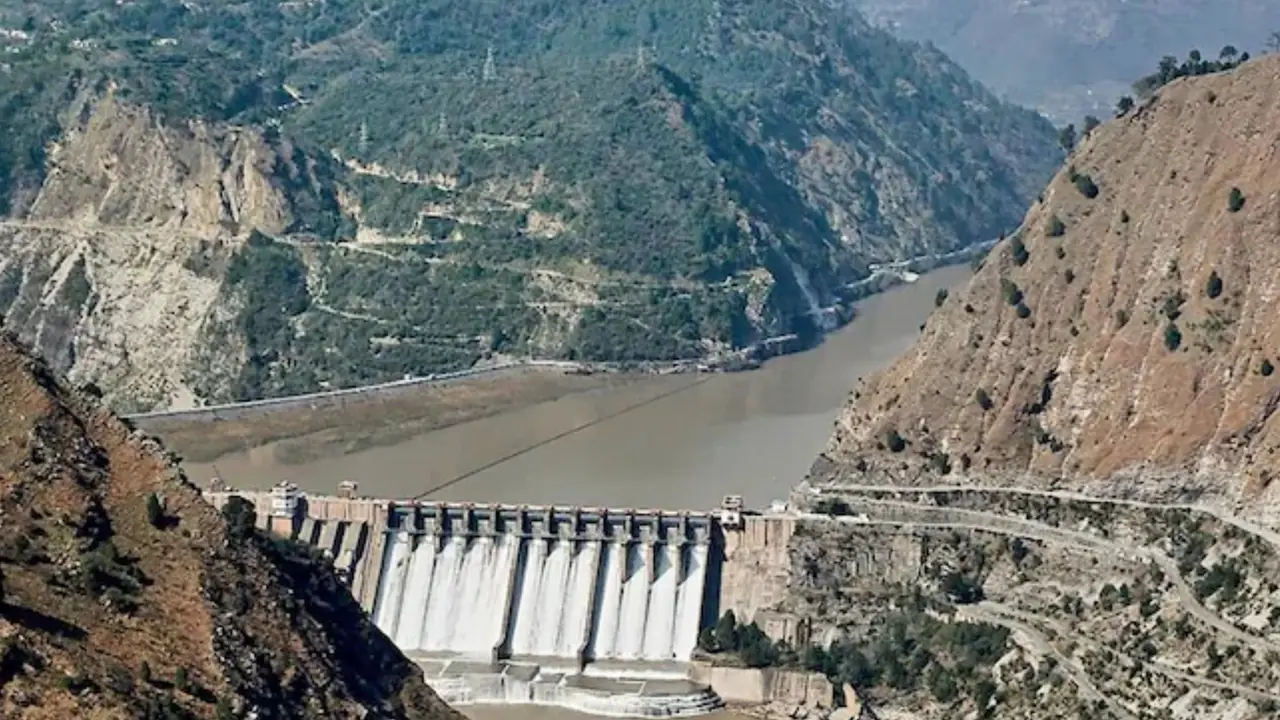Updated 7 June 2025 at 08:42 IST
Pakistan Pleads with India in Fourth Letter, Urges Reconsideration of Indus Waters Treaty Suspension
Pakistan has sent a fourth letter to India, pleading to resume the Indus Waters Treaty, but India has not responded and remains firm on its suspension.
- India News
- 4 min read

With its water security under serious threat, Pakistan has written four letters, one after another to India, pleading for the reconsideration of India’s decision to suspend the Indus Waters Treaty.
The suspension, which was initiated in the wake of the deadly Pahalgam terror attack, has left Pakistan staring at a mounting water crisis. With the treaty governing the flow of the Indus River and its tributaries, Pakistan’s agricultural sector at risk.
Even after India launched Operation Sindoor to target terrorist camps in Pakistan and Pakistan-Occupied Kashmir (PoK), Pakistan continued to send letters about the Indus Waters Treaty (IWT), sources say.
India has clearly stated that "terror and trade cannot go together" and that "blood and water cannot flow together." While the IWT was originally signed in good faith, India says Pakistan has broken this spirit by supporting terrorism across the border.
Advertisement
Pakistan’s Water Resources Secretary, Syed Ali Murtaza, has sent four letters to India’s Jal Shakti Ministry, asking for the treaty to be restored. These letters were later sent to India’s Ministry of External Affairs (MEA).
India, however, has insisted that the treaty will remain suspended until Pakistan “credibly and permanently” stops supporting terrorism. This decision was backed by India’s top security body, the Cabinet Committee on Security (CCS), right after the Pahalgam terror attack on April 22. This is the first time India has paused the treaty, which was originally mediated by the World Bank.
Advertisement
Despite Pakistan’s repeated requests, India has not responded and remains firm in its stance, saying talks won’t resume until Pakistan addresses terrorism. India has also stopped sharing key data about the flow of the Indus, Jhelum, and Chenab rivers, which are essential for Pakistan’s farming and economy. Pakistan relies on the Indus River system for about 80% of its water needs, making this suspension even more critical.
India Plans Major Canal Projects to Divert Indus Waters
Amid the ongoing suspension of the Indus Waters Treaty, India is moving forward with major infrastructure projects aimed at better utilizing its share of the Indus river system. One of the key plans includes constructing a 130-kilometre-long canal to link the Beas River with the Ganga Canal. Additionally, there is a proposal to build another canal that would connect the Indus River directly to the Yamuna.
As part of this initiative, a 12-kilometre-long tunnel is also being planned within a larger 200-kilometre-long project. The canal network is expected to benefit several northern states, including Rajasthan, Haryana, Punjab, and the national capital, Delhi.
Government sources indicate that work on these projects is progressing rapidly and could be completed within the next two to three years. A Detailed Project Report (DPR) is currently being prepared to outline the technical and logistical aspects of the project.
With India halting data-sharing and water flow arrangements under the Indus Waters Treaty, Pakistan is reportedly already facing a water crisis. Sources suggest that the suspension could have a significant impact on Pakistan’s rabi crops, while the kharif crop season might see a relatively lesser effect.
What is the Indus Waters Treaty?
The Indus Waters Treaty was signed in 1960 between India and Pakistan to regulate the sharing of water from the Indus River and its tributaries. Under the agreement, Pakistan received control over the western rivers Indus, Jhelum, and Chenab while India was allocated the eastern rivers Ravi, Beas, and Sutlej.
The treaty was hailed as a successful example of conflict resolution, and it has survived multiple wars between the two countries. However, recent tensions and India’s decision to suspend the treaty have put the long-standing agreement under stress.
The treaty is crucial for Pakistan, which relies on the Indus waters for irrigation, agriculture, and a large portion of its economy. Any disruption in water flow could have serious consequences, including economic instability and civil unrest.
Get Current Updates on India News, Entertainment News, Cricket News along with Latest News and Web Stories from India and around the world.
Published By : Navya Dubey
Published On: 7 June 2025 at 08:42 IST
